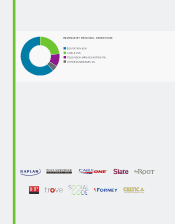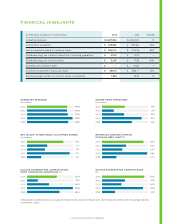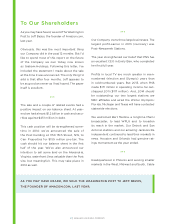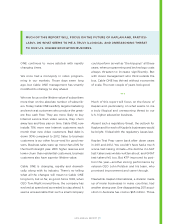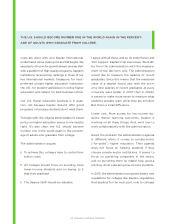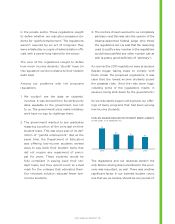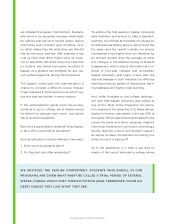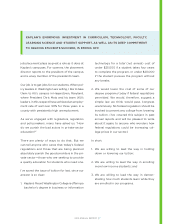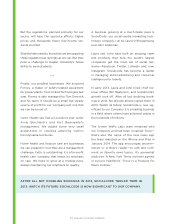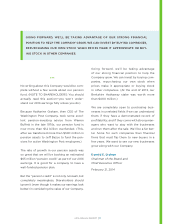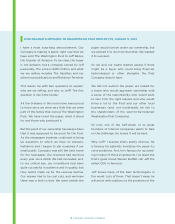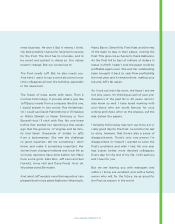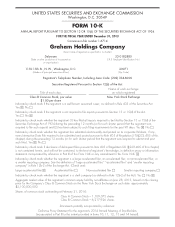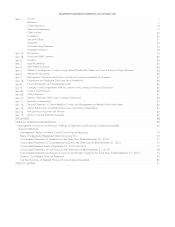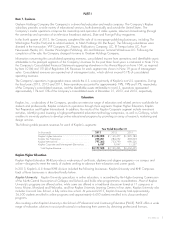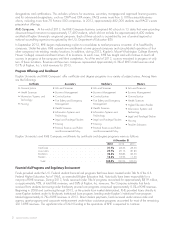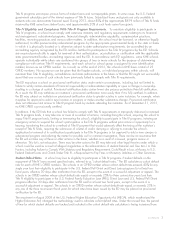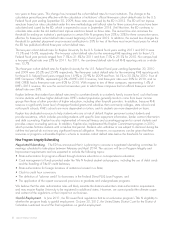Washington Post 2013 Annual Report Download - page 12
Download and view the complete annual report
Please find page 12 of the 2013 Washington Post annual report below. You can navigate through the pages in the report by either clicking on the pages listed below, or by using the keyword search tool below to find specific information within the annual report.
10 | GRAHAM HOLDINGS COMPANY
DON GRAHAM’S REMARKS TO WASHINGTON POST EMPLOYEES, AUGUST 5, 2013
I have a most surprising announcement. Our
Company is making it public right now that we
have sold The Washington Post to Je Bezos,
the founder of Amazon. To be clear, the buyer
is not Amazon, but a company owned by Je
personally. The price is $250 million, and what
we are selling includes The Gazettes and our
other local publications and Robinson Terminal.
This leaves me with two questions to explain:
why are we selling, and why to Je? The first
question is much the harder.
All the Grahams in this room have been proud
to know since we were very little that we were
part of the family that owned The Washington
Post. We have loved the paper, what it stood
for and those who produced it.
But the point of our ownership has always been
that it was supposed to be good for the Post.
As the newspaper business continued to bring
up questions to which we have no answers,
Katharine and I began to ask ourselves if our
small public Company was still the best home
for the newspaper. Our revenues had declined
every year since 2006. We had innovated, and,
to my critical eye, our innovations had been
quite successful in audience and in quality, but
they hadn’t made up for the revenue decline.
Our answer had to be cost cuts, and we knew
there was a limit to that. We were certain the
paper would survive under our ownership, but
we wanted it to do more than that. We wanted
it to succeed.
So we and our board started asking if there
might be a buyer who could bring financial,
technological or other strengths the Post
Company doesn’t have.
We did not auction the paper; we looked for
a buyer who would approach ownership with
a sense of the responsibility, who would want
to own it for the right reasons and who would
bring a lot to the Post and our other local
businesses (and, not incidentally, be fair to
the shareholders of the soon-to-be-renamed
Washington Post Company).
So now, one of the half-dozen or so great
founders of Internet companies wants to take
on the challenge. He knows it will be hard.
Why Je? I assume that’s pretty obvious. He
is famous for patiently investing—for years—to
solve problems. And, he’s famous for succeed-
ing in many of those investments. I’ve heard the
Post’s great friend Warren Buett call Je the
ablest CEO in America.
Je knows many of the best technologists in
the world. Lots of them. That doesn’t mean he
will arrive with solutions to the problems of the


